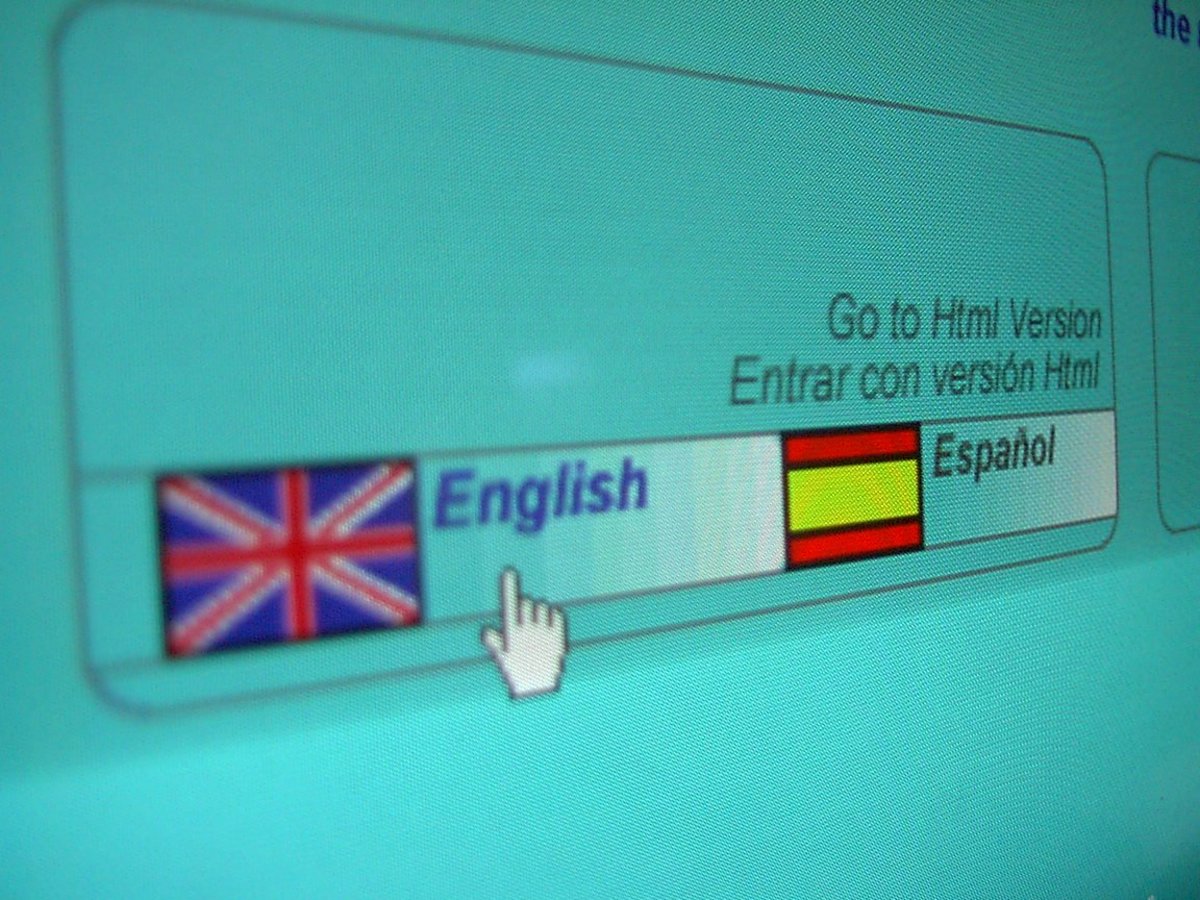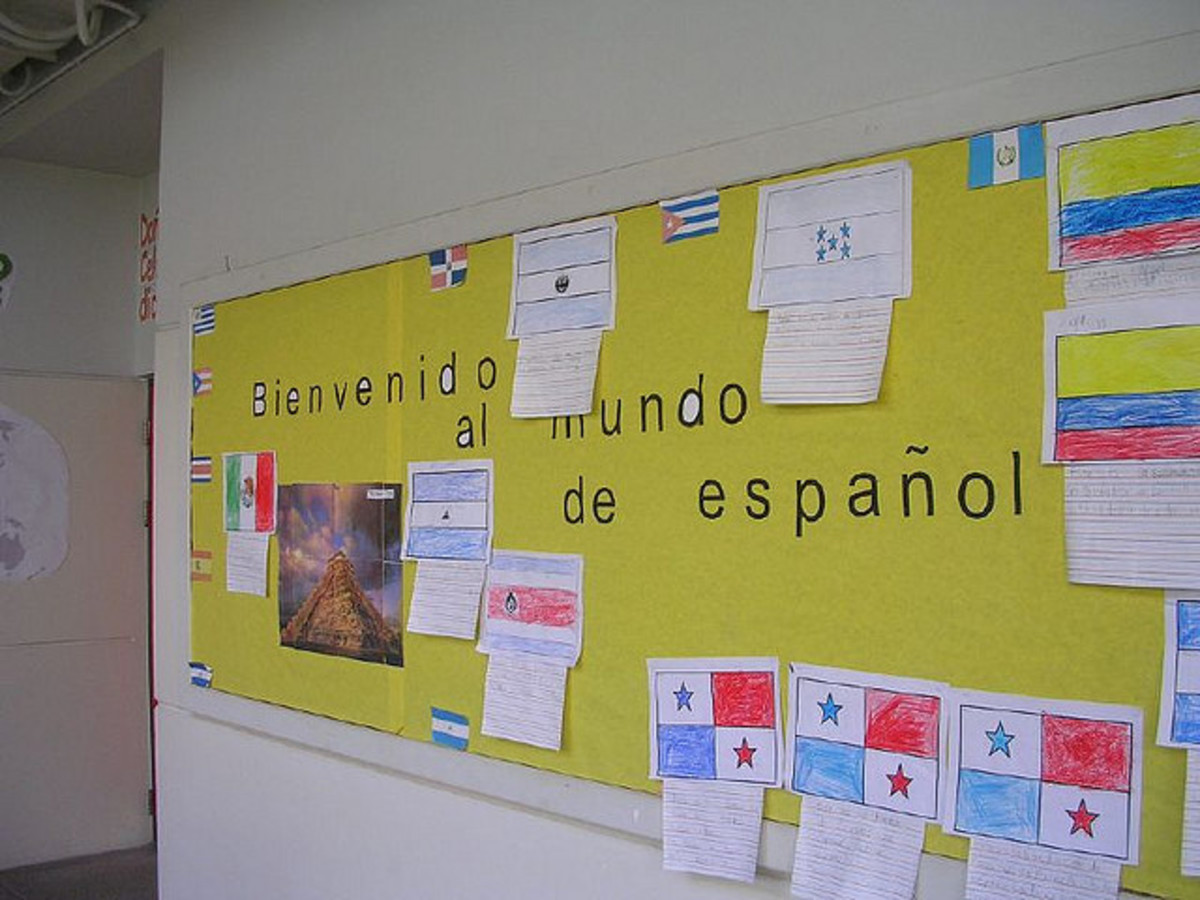Ten Reasons to Learn to Speak Spanish

#10. Spanish is the second most widely spoken language in the world.
Mandarin Chinese is the number one most widely spoken language in the world, with 825 million native speakers, and Spanish comes in second place with 329 million native speakers. More people speak Spanish as a native language than English! And with all of the people who speak Spanish as a second language included, you could converse with 500 million people!
Ok, so you could technically learn Mandarin Chinese, but let's face it. You already speak English, so learning Spanish is going to be a cinch compared to Chinese! Which brings me to my next point...

#9. It is VERY EASY for english speakers to learn!
Spanish comes from the Indo-European language family, just like English does. It uses the same alphabet, and follows similar phonetic patterns. Technically, English is a Germanic language, and Spanish is a Romance language, but English was heavily influenced by Latin and French in the past, two Romance languages! Which means that English has many words in common with Spanish! In modern times, Spanish has taken heavy influence from English, adopting words like "cool" into its vocabulary.
Compared with other languages, Spanish grammar follows some very basic, easy to understand patterns, making it a piece of cake to learn.

#8. It's one of the six official languages of the United Nations
Let's think about this. There are between 3000-6000 languages currently spoken today. Of all of those thousands of languages, Spanish was selected by the U.N. as one of the six most important languages to understand. That is a pretty lofty title!
#7. The phonetics and pronunciation are easy.
Unlike English, spelling in Spanish ALWAYS follows the same rules, meaning you can avoid the confusing "dove-cove-move" dilemma. Once you learn how to pronounce each individual letter, that's it. You're set for life.
Plus, there's no fancy spelling, like in French (for the longest time I thought hors d'oeuvres was pronounced "horse doo overs"), and no coughing up phlegm, like in German.
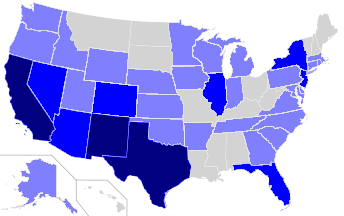
#6. It's the second language of the United States
For you U.S. citizens out there, haven't you ever been walking through the supermarket and passed a family rattling off to each other in Spanish? You probably started wondering if the kids are saying something like "Mommy, look at that man, he's so fat," and the parents reply, "Yes dear, and he smells terrible."
Or what about you young ladies who have found yourselves in a quandary simply walking down the street? You know how it goes- you pass a group of men, who begin talking among themselves in a foreign language. You're sure they're making crude comments about you, but you can't understand or respond! How degrading!
Well, here's the solution: Obviously, based on lessons of history, the Spanish speakers are here to stay, so go ahead and LEARN SPANISH! You'll be able to tell off the snotty little kids, make the guys think twice about who understands them, and impress all of your friends and family!
#5. Learn Spanish and you'll be able to understand other languages.
Ever since learning Spanish, I have easily understood people conversing in Portuguese, Galician, Italian, Catalan, and French. Of course, I don't pick up every word, but I can easily get the gist of the conversation, and I can understand everything that is written in these romance languages. It is wonderful, and friends of mine who have learned Spanish report the same thing!

#4. It is as useful as Latin, but it's a living language.
How many times did people tell you when you were a child, "You should learn Latin because it's important to your life for this and that and all of these things an yes it's dead but oh, you'll be a doctor someday..." ?
Well, I'd like to officially challenge this point of view. Spanish, as it so happens, descended directly from Latin! By learning Spanish, you are able to learn all of the roots of so many words, which is precisely why Latin is advocated in schools! For example:
Spanish "to write: escribir --> as in scribe
Spanish "body": cuerpo --> as in corpus, corporal, corpse
Spanish "green": verde --> as in verdant, verdancy, verdantly
And so on, and so on! Once you know Spanish, you can easily look at Latin words used in science and medicine, connect it back to the Spanish word, and understand its meaning. This is extremely useful for reading comprehension, SAT's, GRE's, and studying sciences, PLUS, you can use Spanish every day!
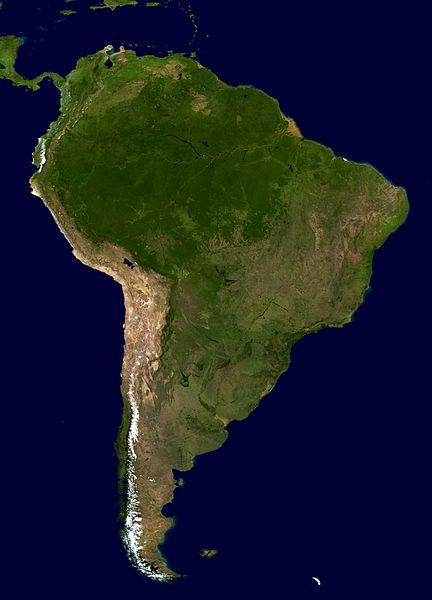
#3. It is spoken on FIVE CONTINENTS!
1. Europe
Spanish origninated in Spain, where it is an official language. It is also widely spoken in Andorra and Gibraltar, and it is a common second language across Europe.
2. North America
Spanish is the official language of Cuba, Costa Rica, Dominican Republic, El Salvador, Guatemala, Honduras, Mexico, Nicaragua, and Panama. It is a co-official language of Puerto Rico, and is also widely spoken in the United States, Belize, and Trinidad.
3. South America
Spanish is the #1 language is South America, and is the official language of Argentina, Bolivia, Chile, Columbia, Ecuador, Paraguay, Peru, Uruguay, and Venezuela. It is closely related to the language of Brazil, Portuguese, and is commonly spoken in Brazil.
4. Africa
Spanish is an official language of Equatorial Guinea, and an official language of the African Union. It is also common in Western Sahara (a disputed territory between Morocco and Algeria), Spanish cities of North Africa (Ceuta and Melilla), the Canary Islands, and it is spoken by groups in Morocco, Angola, South Sudan, and Nigeria.
5. Asia
Spanish has heavily influenced the languages of the the Philippines, Guam, and the Northern Mariana Islands. Chabacano is a Spanish- Phillipine pidgin, and it is mutually intelligible.
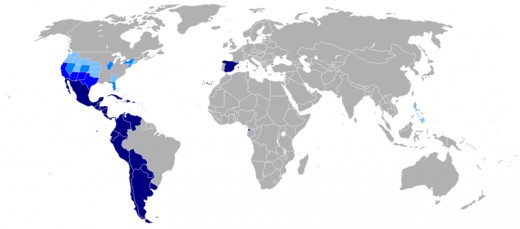

#2. It opens up a world of travel.
Ever dreamed of island-hopping through the Galapagos, trekking through the Amazon rainforest, hiking up to Machu Picchu, climbing to the top of the Mexican Pyramids, smoking a cigar in Cuba, watching flamenco in Seville...?
There are countless attractions for tourists all across Spanish-speaking countries. By learning to speak the language, you will enjoy much more cultural interaction with the people of Spanish-speaking places, which can be the greatest joy of travel, and knowing the language just may open up doors for you to make your travel experiences more fun and more meaningful. You could enjoy a cooking lesson from your friend's grandmother, ride horses on a country man's farm, or fully understand the benefits of a tour by a native, non-English speakng guide who really knows the area. Because Spanish-speaking countries are so diverse culturally and physically, you could travel to new places for years while enjoying the benefit of understanding the language.


#1. It's just really freaking cool.
Anyone who has gone through the hassle of really learning a foreign language will tell you that as difficult as it may be at first, it more than makes up for the effort in the end. Learning a foreign language opens up an intellectual arena, leading to a better understanding of your own language, but it also opens you up to new friendships that you never could have enjoyed without understanding the language. You will come to understand, on the deepest of levels, that healthy relationships are possible between all human beings.
You will even learn fun cultural things, like the fact that Spanish-speakers sometimes call their loved ones "fatty" (gordito or gordita, something that would never fly in English!).
And you will impress your friends and family to no end by easily conversing with others who you bump into every day. You will inspire others to learn new languages, which will further enrich their lives, leading to a sort of butterfly-effect.
I have to confess: this rule can be applied to any foreign language. Taking the time and trouble to learn a foreign language is probably one of the highest-return investments you will ever make.
HOW CAN I LEARN SPANISH???
- 8 Ways to Learn Spanish, Guaranteed!
How to learn Spanish on the internet, with friends, and on your own. How to travel cheaply to learn Spanish.




